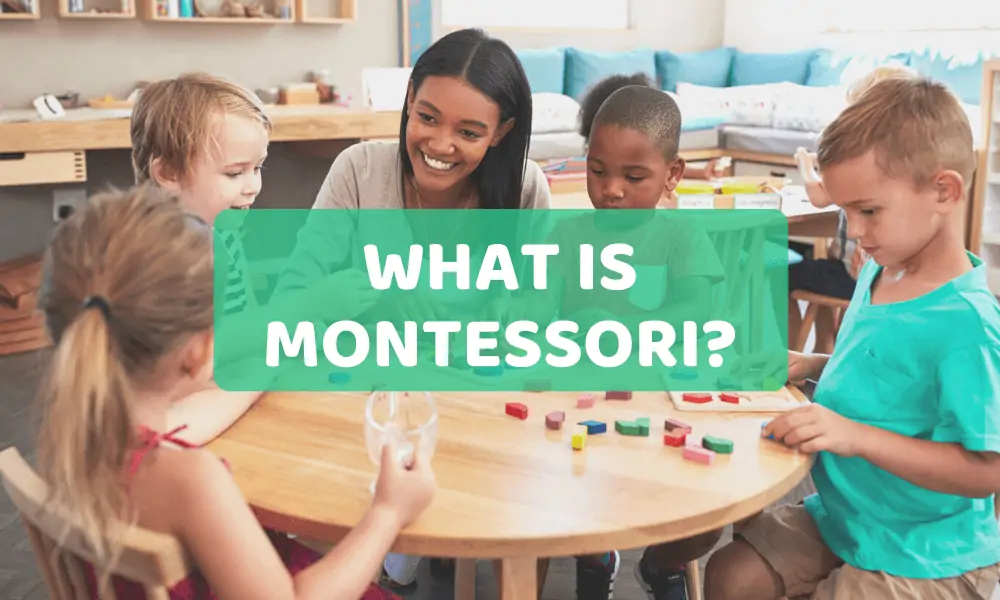
What is the Montessori Method of Education?
December 12, 2023
Montessori education, developed by Maria Montessori, emphasizes a child-centred approach to learning that respects each child’s unique developmental journey. The exact meaning of Montessori education is prioritizing independence, freedom within limits, and hands-on learning experiences. In a Montessori environment, children are encouraged to explore, discover, and learn at their own pace, fostering a love for learning that lasts a lifetime. This approach recognizes the importance of nurturing the child completely with intellectually, socially, emotionally, and physically—laying the foundation for a holistic education that promotes creativity, critical thinking, and a deep understanding of the world
Key Aspects of Montessori Method for Children
The Montessori method of education is designed to cater to the developmental needs of the children. Maria Montessori believed in providing an environment that fosters independence, exploration, and a love for learning. Here are key aspects of the Montessori method for children:
-
Prepared Environment:
- The classroom or learning space is carefully prepared to be child-friendly and accessible.
- Furniture and materials are appropriately sized for young children, allowing them to independently access and use the materials.
-
Freedom of Choice:
- Children are encouraged to choose activities based on their interests from a range of age-appropriate materials.
- This freedom of choice helps develop decision-making skills and a sense of independence.
-
Practical Life Activities:
- Practical life activities form a significant part of the curriculum. These activities include tasks like pouring, sweeping, buttoning, and other daily life skills.
- Practical life activities promote fine and gross motor skills, coordination, and a sense of order.
-
Sensorial Activities:
- Sensorial materials are designed to stimulate and refine the child’s senses. These materials help children explore concepts like size, shape, color, and texture.
- Sensorial activities lay the groundwork for future academic learning by enhancing the child’s perception and discrimination abilities.
-
Language Development:
- Language development is crucial during this stage. Montessori classrooms provide activities that support spoken language, vocabulary development, and pre-reading skills.
- The use of storytelling, books, and language games encourages a love for language and literature.
-
Mathematical Concepts:
- Early exposure to mathematical concepts is integrated into the environment. Simple counting, sorting, and matching activities help lay the foundation for more advanced math skills.
- Concrete materials are used to introduce abstract mathematical concepts, making them more accessible and tangible for young learners.
-
Art and Creativity:
- Art activities are often open-ended, allowing children to express themselves creatively.
- The emphasis is on the process rather than the end product, fostering creativity and individual expression.
-
Nature and Outdoor Exploration:
- Nature walks and outdoor activities are included to connect children with the natural world.
- Gardening and outdoor play contribute to physical development and an appreciation for the environment.
-
Mixed-Age Groups:
- Montessori classrooms often have mixed-age groups. Older children act as role models and mentors for younger ones, fostering a sense of community and cooperation.
-
Grace and Courtesy:
- Children are taught social skills, manners, and respect for others through lessons on grace and courtesy.
- Emphasis is placed on building a peaceful and collaborative community within the classroom
Conclusion
In conclusion, the exact meaning of Montessori education is that it is a distinctive approach to learning that emphasizes child-centered education. It nurtures a child’s natural curiosity and encourages independent, self-paced learning within a structured environment. By focusing on hands-on activities and collaborative play, Montessori education fosters cognitive, social, and emotional development. This method promotes critical thinking, problem-solving skills, and a lifelong love of learning, which equips children with the tools they need to thrive in diverse and dynamic environments. It’s holistic approach ensures that children not only acquire academic knowledge but also develop as confident, capable, and compassionate individuals. So overall we know what is Montessori method and the reasons why to choose it for kids.


